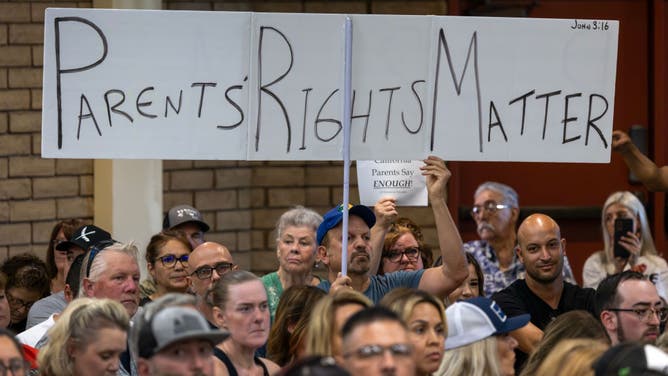Judge Blocks New Jersey Schools From Notifying Parents About Child's Gender Identity
Imagine telling parents that their kids are none of their business. That's exactly what's happening in New Jersey.
A judge has temporarily blocked new school district policies that would mandate schools to alert parents if their child changes their gender identity.
New Jersey's Marlboro, Manalapan-Englishtown and Middletown school districts all enacted policies this spring requiring teachers to notify parents if a student wanted to formally change their gender identity, pronouns, name, use different bathrooms or participate on sports teams for a different gender.
But Monmouth County Judge David Bauman temporarily shut down those new rules after some Democrats (including Gov. Phil Murphy) claimed they are harmful to transgender students.
"The state has demonstrated a reasonable probability of success on its claim that the Amended Policies, if implemented, will have a disparate impact on transgender, gender nonconforming, and nonbinary youth," Bauman wrote.

A New Jersey judge temporarily blocked a New Jersey schools policy on transgender students. (Photo by Vuk Valcic/SOPA Images/LightRocket via Getty Images)
New Jersey Attorney General Matthew Platkin praised the judge's decision. He had previously sued the school districts after the policies' approval.
"As the Superior Court correctly found, and as we have argued from the start, it is likely that these new policies violate the rights of our most vulnerable residents by discriminating against them on the basis of gender identity or expression," Platkin wrote in a statement.
"The Court's decision today is a major victory for civil rights — especially for the civil rights of our State's LGBTQIA+ students."
The current policy for New Jersey schools takes a 'student-centered approach.'
So to change a student's name or gender, they do not require parental consent or knowledge.
"Schools are advised to work with the student to create an appropriate confidentiality plan regarding the student's transgender or transitioning status," the policy reads.
According to Platkin, though, they are simply protecting the rights of transgender kids. He said the old policy still allows teachers to notify parents "based on individualized and non-discriminatory assessments of a particular child's needs and circumstances."
In other words, they know what's best for your kids — you don't.
Marlboro Board of Education attorney Marc Zitomer said a decision in the courts could take years.
"In the meantime, the school district is now severely constrained in its ability to notify parents about important issues involving their minor children, which is concerning on many levels," Zitomer said. "We are exploring our avenues for appeal."

Parents all over the country fight for their rights to stay informed about their children. (Photo by David McNew/Getty Images)
And another school district attorney, Bruce W. Padula, said they could very well appeal Judge Bauman's decision.
"We look forward to presenting our full case and demonstrating that schools should not be required to hide information from parents," Padula said.
"In every other aspect of operating a school district, parent communication is our primary focus. There is no reason why this situation should be different."
Judge Bauman said he wants the courts to reach a decision "expeditiously." But for right now, parents are in the dark.